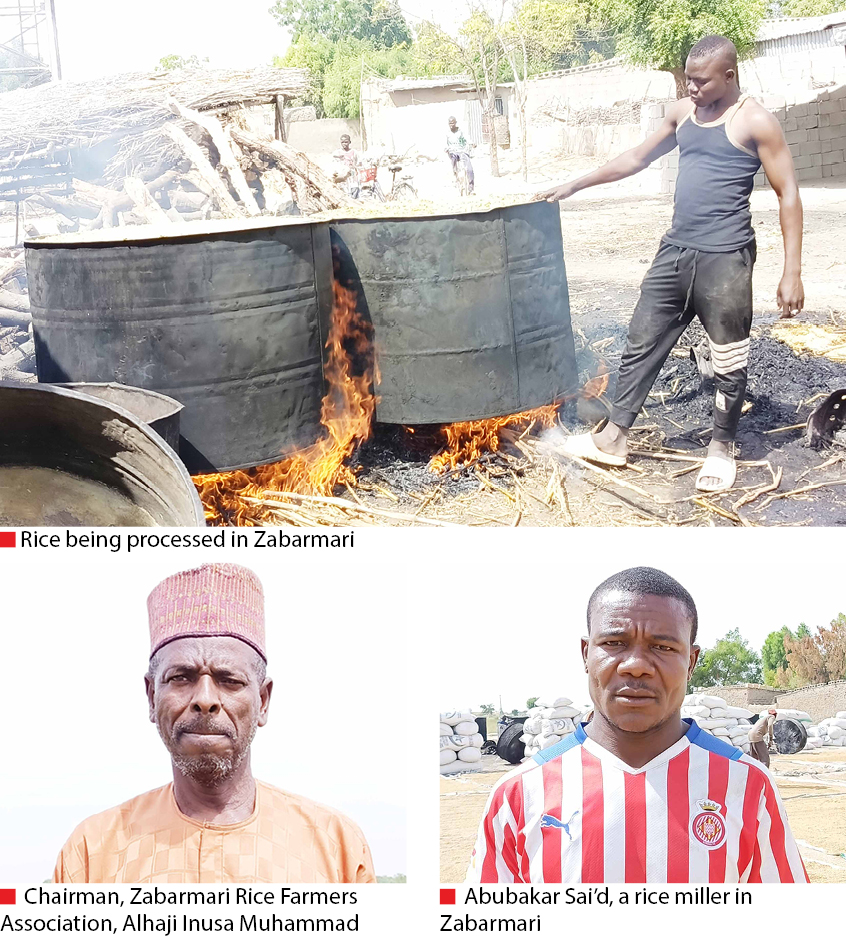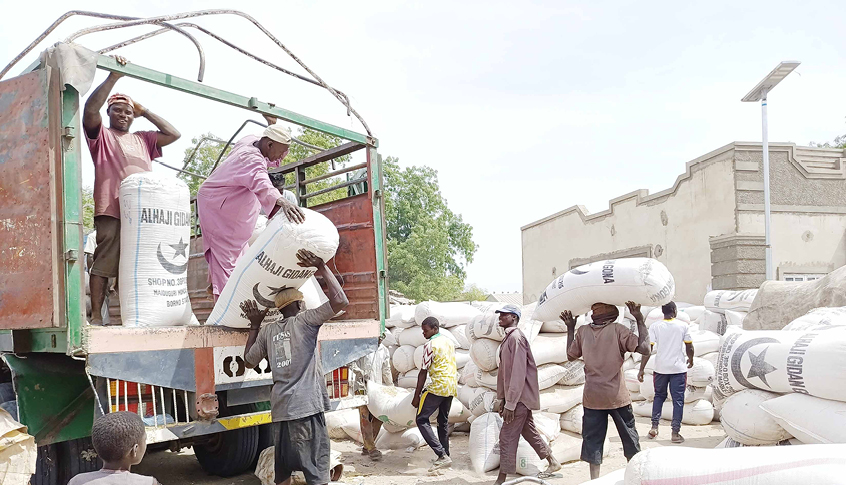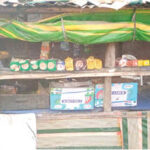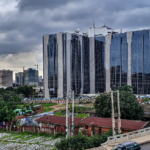Zabarmari rice is believed to be one of the best locally produced rice in Borno state, however, with the attack on the community by bandits that left many farmers dead, it has become a scarce commodity. Daily Trust Saturday takes a look at the current situation of the farmers, consumers and the produce as well.
As rice-planting areas in Zabarmari continue to shrink, local processing industries in the town equally face threat of low output, creating shortage of the produce in Borno and some neighbouring states.
Beyond Borno State, Zabarmari is known as a hub of paddy production, where thousands of hectares of land are being cultivated and rice processed into staple food, year-in-year-out.
However, with the attack that left over 50 rice farmers dead in the town and the daily growth of inflation in Nigeria, customers are now grappling with a soaring cost of this local rice.
One year after, residents remember 48 farmers killed at Zabarmari
Zabarmari processors, customers decry shortage of rice paddy
When Daily Trust Saturday visited Bulunkutu Kasuwa market, buyers who described Zabarmari rice as one of the best, complained that its scarcity had continued to affect the general market price of rice in many parts of the town.
One of the buyers, Zainab Abdulhamid, said Zabarmari rice was hardly seen in the market, and if one was lucky to get it, the price had shot up to N1,900 from N1,600 per measure, making it difficult for most consumers to adjust.
“Rice has become one of the commodities that are hard to get. Since the ban on the importation of foreign rice, people resorted to local varieties because it is healthy and affordable, but it is now becoming very expensive due to scarcity. It is becoming out of reach and dealers have stopped supplying.
“The other available ones have stones and usually dissolve in the pot while cooking,” he said.

One of the traders in the market, Mubarak Abdullahi, said his customers were always asking for the rice because it has a very good taste and nice aroma.
“My customers always bought Zabarmari rice and one could hardly convince them to consider other options, but as time went on, the rise in price and decrease in supply forced them to resort to other local varieties,” he said.
A wholesaler in the market, Bagana Aisami, said the high cost of the rice forced many traders to stop supplying it, adding that most buyers changed their preference to foreign rice.
“As a businessman, I follow customers’ demand. I hardly see Zabarmari rice in this market, but some bad people supply similar rice and sell to people as Zabarmari rice, which is wrong,” he said.
Another trader, Ba’ari Yusuf, lamented that the scarcity of Zabarmari rice had caused its quality to be compromised. “It does not dry well, so it easily gets bad if it takes a long time before sale, that’s why many traders are not patronising it,” he said.
When Daily Trust Saturday visited local rice mills in Zabarmari town, most of the millers interviewed also said the planting area had shrunk as a result of the massacre but bad harvest aggravated the situation.
“To supplement that, we were compelled to start sourcing the paddy from Hadeijia and Taraba and mill it here (Zabarmari) so as to keep the business alive,” he said.
He, however, said that action had not salvaged the situation because the price of the rice increased in order to cover the cost of transportation and what they spent on processing and de-stoning the rice.
“Before now, rice farmers in Zabarmari had the capacity to feed Maiduguri and other parts of the state, but with the calamity that befell them, they can’t produce the quantity because some of the farmlands are still not accessible,” he said.
The chairman of Zabarmari Rice Farmers Association, Alhaji Inusa Muhammad, who was born into the rice farming community about 56 years ago also said, “There was a time we processed the paddy using our hands (mortar and pestle), transported the processed rice to Maiduguri on our heads, donkeys and later loaded on trucks.
“I can’t give an estimate of the amount of rice cultivated or processed and sold because so many people are into this business, but you can find more than 100 farmers that cultivate 1,000 bags each, while hundreds of farmers like me can produce from 100 up to 200 bags in this town,” he said.
Muhammad blamed the shortage of the paddy to the Zabarmari massacre and the presence of the insurgents in the farmlands, making them currently inaccessible.
“Since that incident took place, many people became afraid and ceded their farmlands to insurgents. So, at community level we decided to share our farmlands with such people,” he said.
He also revealed that last season, farmlands were submerged by flood, making many farmers in the area to lose large portions of their crops.
“Farmers could not even get half of what they invested in their farmlands; and the market price of paddy dropped drastically, to a level that it does not even meet cost of production,” he said.
While thanking the Governor Babagana Umara administration for building a new school in the community, Muhammed also appealed for the governor’s intervention on agriculture.
“Rice farming and fishing are the two most important occupations of people in this community. They have provided jobs and food security to millions of people in Borno State.
“We are very mindful of the good things the governor has been doing in the state, but we want his attention in Zabarmari to help develop an irrigation system that would engage our people all-year-round to improve production,” he said.
Malam Adamu, 58, a rice farmer in Zabarmari, said he only planted in less than one third of his farmland because of the security situation in the area.
“The remaining part is very remote and hard to reach because of the activities of Boko Haram terrorists; that’s why we abandoned it. But relatively, the area is becoming safer now due security operations.
“We hope for a bumper harvest and better days ahead of this year’s rainy season,” he said.
Also, Malam Abubakar Said, who spent over 20 years in the milling business and has the largest factory in Zabarmari, also attributed the shortage to last year’s flood that ravaged many farmlands in the area.
“Before now, we operated in full capacity, where we produced 40 bags and above daily. However, with the flood that destroyed rice farms here, the quantity dropped.
“But we still process at least 30 bags of 100kg paddy every day, which in turn give us between 25 and 28 bags of 50kg parboiled rice daily. It is being determined by the type of paddy bags we purchased, whether it’s Mai cover or Kilo,” he said.
“Majority of this paddy is being sourced locally from our farmlands. But with the current shortage, we started buying from neighbouring states, where they are into dry season farming because we don’t do irrigation farming here,” he said.

 Join Daily Trust WhatsApp Community For Quick Access To News and Happenings Around You.
Join Daily Trust WhatsApp Community For Quick Access To News and Happenings Around You.


